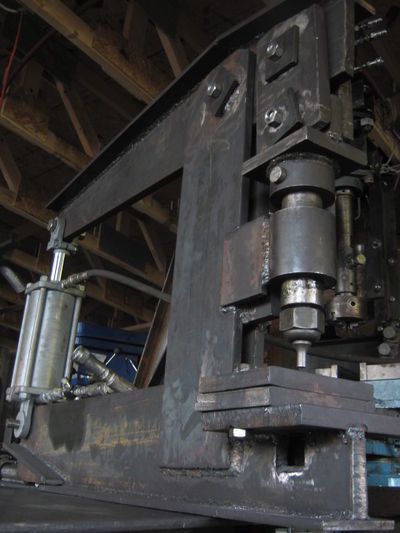Ironworker: Difference between revisions
Jump to navigation
Jump to search
m (→Status) |
|||
| Line 18: | Line 18: | ||
'''Uses''' | '''Uses''' | ||
* | *{{Furnace}} Steel | ||
* | *{{Welder}} parts | ||
'''Creates''' | '''Creates''' | ||
* | *{{CEB}} arm holes | ||
* | *{{LifeTrac}} treads and plate holes | ||
See [[Product Ecologies]] for more information. | See [[Product Ecologies]] for more information. | ||
Revision as of 00:46, 24 September 2011
| Ironworker | ||
|---|---|---|
| Home | Research & Development | Bill of Materials | Manufacturing Instructions | User's Manual | User Reviews | 
| |
Overview
An Ironworker is the amalgamation of 5 machines clubbed into a single engineering wonder, forming the backbone of many fabrication workshops. An Ironworker comprises of a punching machine, a plate shear, a section shear, a punch and shear machine and a coper-notcher.
Generating force using hydraulic systems or mechanical leverage, Ironworker machines can shear, punch holes and notch in steel plates.
Details
Product Ecology
Uses
 Induction Furnace Steel
Induction Furnace Steel Welder parts
Welder parts
Creates
See Product Ecologies for more information.
Components
- Structural Steel
- Pins
- Hydraulic Ram
- Controls
- Ironworking
- Press
- Punch - Die
- Shear
- Notcher
Status
The Ironworker is currently in the prototyping phase of product development, with hole-puncher and press variants in active use for CEB and PowerCube fabrication. Future prototypes aim to integrate shearing capabilities and solenoid controls.
See Also


